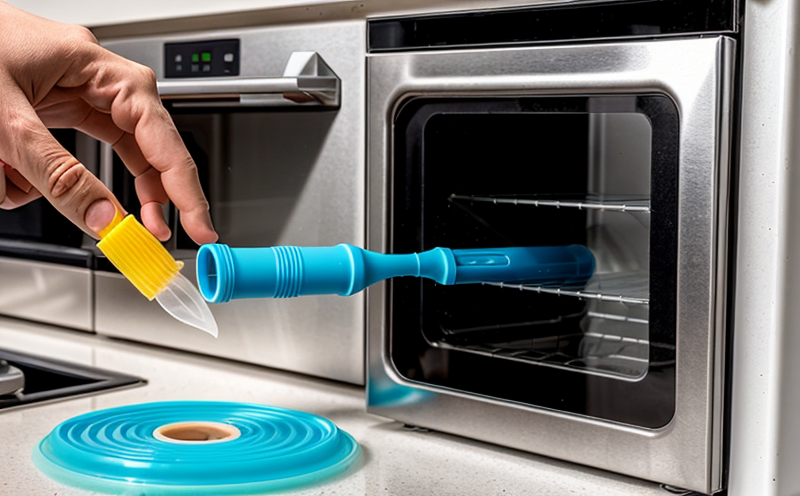ASTM D2126 Thermal Aging Resistance Testing of Household Plastics
The ASTM D2126 test method is a critical standard for evaluating the thermal aging resistance of household plastics. This procedure assesses how well plastic materials withstand exposure to heat over time, which is essential in ensuring product longevity and performance under real-world conditions. The test involves exposing samples to controlled temperatures within a specified range over an extended period.
Household plastics, such as those used in appliances, toys, and furniture, are subjected to various environmental factors including temperature fluctuations. Understanding how these materials behave during thermal aging helps manufacturers design products that meet durability expectations while adhering to safety standards.
The test procedure specifies the use of a forced-air oven with precise temperature control. Specimens are placed inside this chamber at specified temperatures for defined durations. Afterward, physical property measurements (such as tensile strength or impact resistance) and visual inspections are conducted on the samples before and after aging to determine any changes in performance.
Compliance with ASTM D2126 ensures that products meet industry requirements, enhancing consumer confidence by guaranteeing consistent quality across production batches. Additionally, this testing supports sustainable practices by identifying materials that can endure harsh conditions without compromising safety or environmental impact.
For accurate and reliable results, it's crucial to follow the standard closely during sample preparation and testing procedures. Proper specimen selection based on material type is key to obtaining meaningful data from ASTM D2126. Compliance officers can use these findings to make informed decisions about product development and lifecycle management strategies.
The importance of proper training cannot be overstated when conducting ASTM D2126 tests, as even small deviations in methodology could lead to inaccurate results. Quality managers must ensure that all personnel involved understand the nuances of this procedure thoroughly before beginning any testing.
Benefits
- Ensures product longevity and reliability under real-world conditions.
- Aids in meeting industry standards for household plastic products.
- Supports sustainable practices by identifying durable materials.
- Facilitates informed decision-making regarding product development.
- Guarantees consistent quality across production batches.
- Enhances consumer confidence through verified product performance.
Eurolab Advantages
At Eurolab, we pride ourselves on delivering accurate and reliable ASTM D2126 thermal aging resistance testing for household plastics. Our state-of-the-art facilities provide precise temperature control essential for these tests.
We employ highly skilled technicians who are thoroughly trained in following the standard meticulously. This ensures that every test conducted at Eurolab meets or exceeds industry expectations. Our advanced instrumentation allows us to capture detailed data points throughout the process, providing comprehensive insights into material performance over time.
By choosing Eurolab for your ASTM D2126 testing needs, you can rest assured knowing that we deliver consistent and repeatable results every time. This consistency is vital for maintaining high-quality product standards and ensuring compliance with relevant regulations.
Environmental and Sustainability Contributions
The durability provided by ASTM D2126 testing plays a crucial role in promoting sustainable practices within the plastics industry. By identifying materials that can withstand harsh environmental conditions without degradation, manufacturers are better equipped to create products with extended lifespans.
This not only reduces waste but also minimizes resource consumption throughout the product lifecycle. As households increasingly seek eco-friendly options, ensuring long-lasting household plastic items contributes positively towards greener living.
Furthermore, adhering to rigorous testing protocols like ASTM D2126 helps establish trust between manufacturers and consumers regarding environmental responsibility. When companies demonstrate their commitment to sustainability through robust testing procedures, it fosters a culture of accountability that benefits both the environment and society at large.





